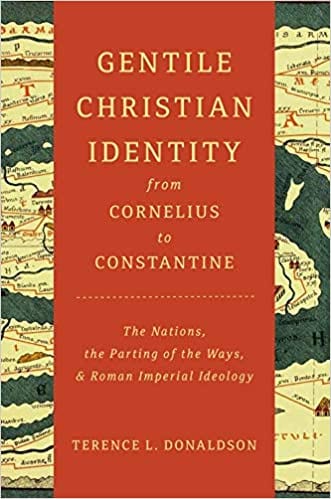Q. At various points in the book you point out how Jews accepted Gentiles as God-fearers and as proselytes. True, but as Scot McKnight showed long ago, the real evidence of Jews having some sort of mission to actually go out and recruit Gentiles to Judaism is lacking. This, it seems to me, is a fundamental difference in modus operandi with Paul and his co-workers, and in general with the attitude of the earliest followers of Christ who believed in... Read more








